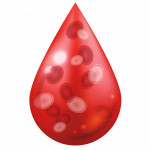Recent trials of the latest hepatitis C virus (HCV) medications have brought more good news for people coinfected with HCV and HIV, showing hep C cure rates comparably high to those seen in studies including people who only have HCV.
In one study, Gilead Sciences’ Harvoni (ledipasvir/sofosbuvir) cured hep C in 96 percent of 335 coinfected participants, of whom 98 percent had genotype 1 of HCV and 2 percent had genotype 4.
In another trial, AbbVie’s Viekira Pak (ombitasvir/paritaprevir/ritonavir; dasabuvir) cured 92 percent of 63 people coinfected with genotype 1.
In a study of Bristol-Myers Squibb’s recently approved Daklinza (daclatasvir) and Gilead’s Sovaldi (sofosbuvir), 97 percent of coinfected participants who had genotypes 1 through 4 were cured. The hep C regimen did not negatively affect HIV treatment.
As of press time, Merck was expecting to receive word in January 2016 from the U.S. Food and Drug Administration about its application for approval of the single-tablet hep C treatment grazoprevir/elbasvir. A recent study saw a 95 percent cure rate among 218 coinfected people who hadn’t received hep C treatment before. A respective 87 percent and 13 percent of them had genotypes 1 and 4, while one person had genotype 6.
Hailing all of these study results as great news for HIV/HCV-coinfected people, Daniel Fierer, MD, an infectious disease specialist at Mount Sinai Hospital in New York City, says the next goal is a regimen that effectively battles all six major genotypes of hep C. Gilead recently released impressive results from four major studies of such a regimen—Sovaldi/velpatasvir—among those who only had hepatitis C.
HIV Is No Major Barrier to Hep C Treatment Success






Comments
Comments